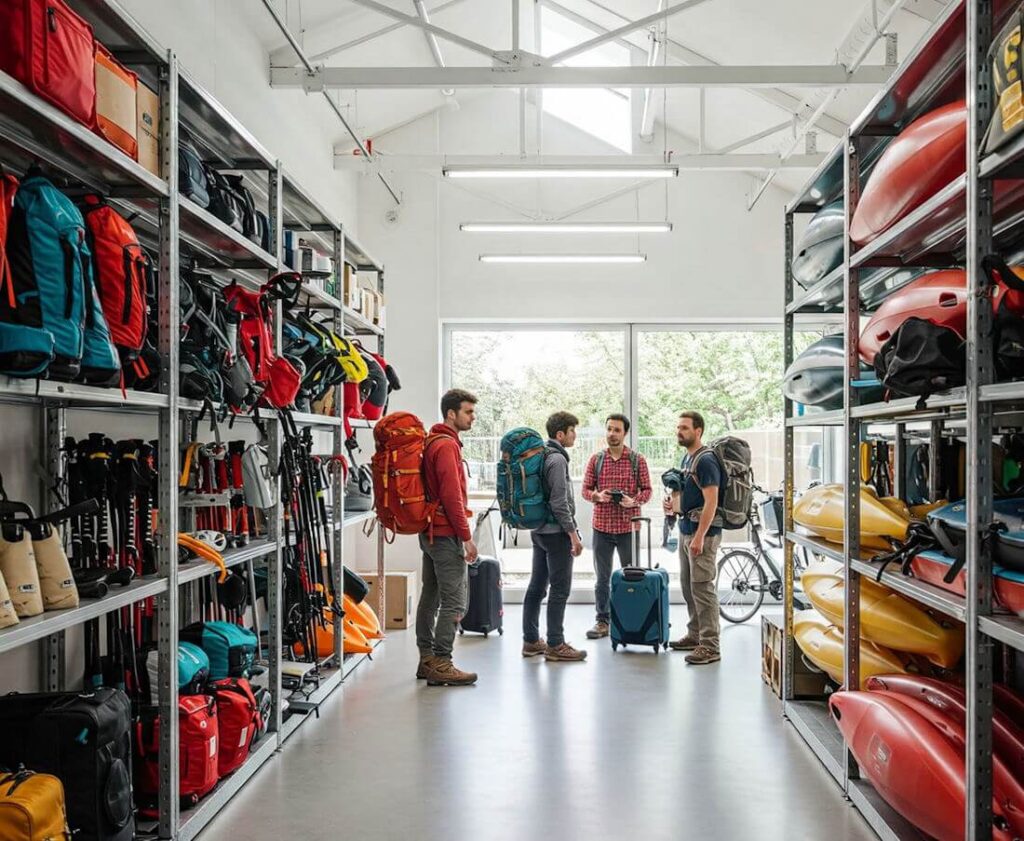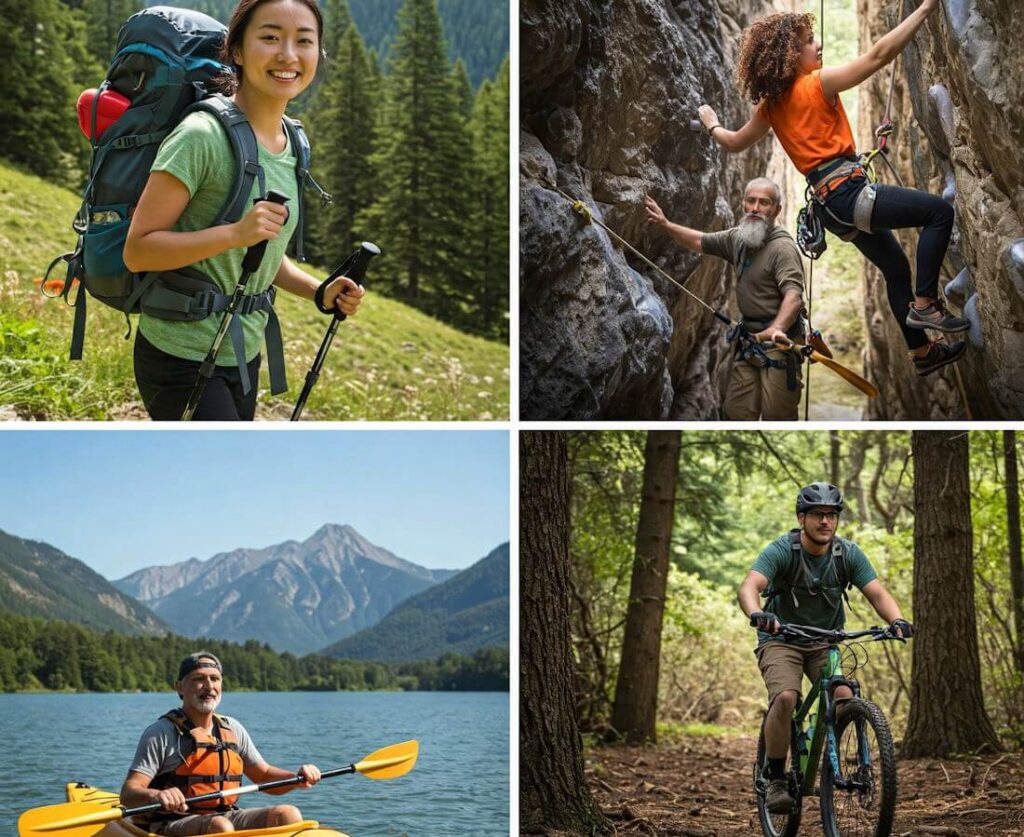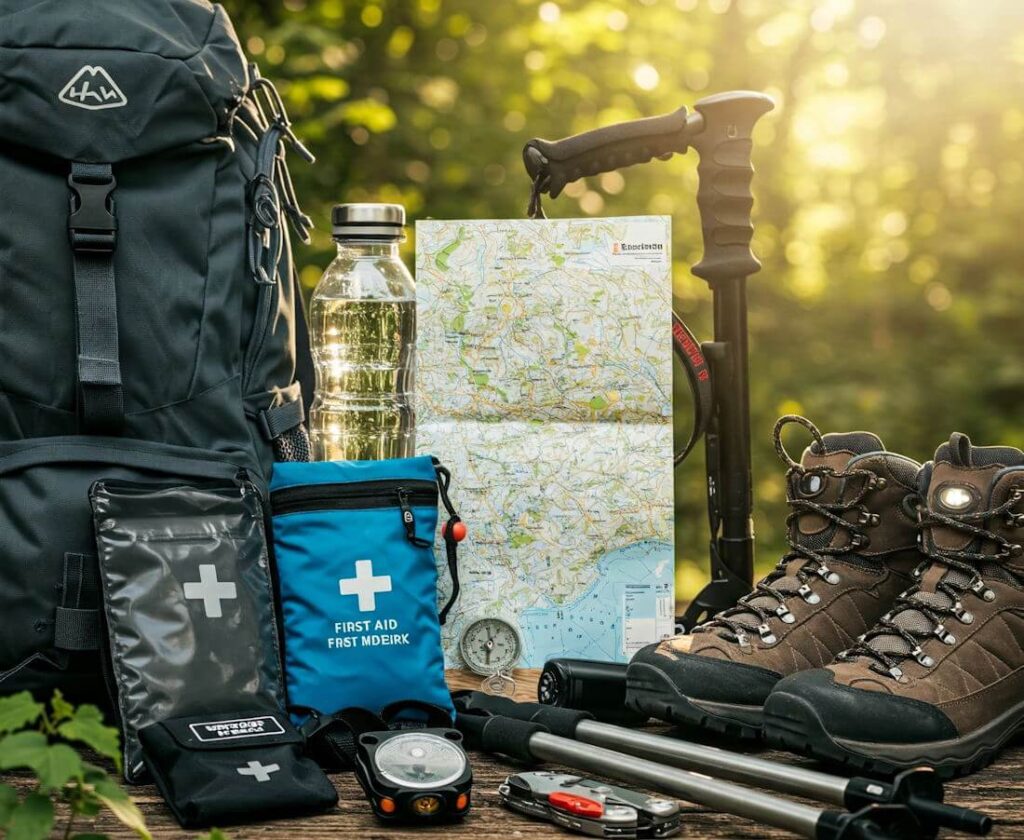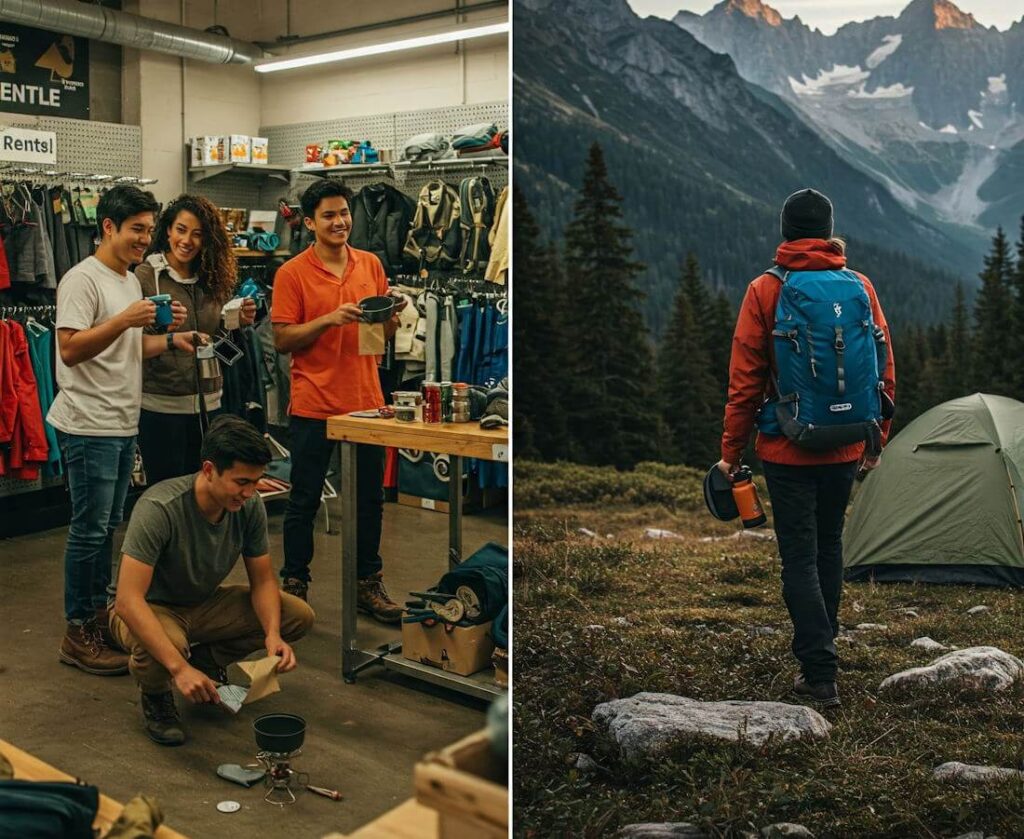Sustainable travel has emerged as a critical consideration in the modern tourism industry, emphasizing responsible travel practices that prioritize environmental protection and cultural preservation. This approach to travel recognizes the negative impacts tourism can have on natural ecosystems and local communities. With increasing awareness of climate change and resource depletion, travelers are becoming more conscious of how their journeys affect the world around them.
The importance of sustainable travel cannot be overstated. It seeks to minimize travelers’ carbon footprints by promoting conscious choices, such as opting for eco-friendly accommodations, supporting local businesses, and engaging in activities that do not harm the environment. Furthermore, sustainable travel strives to protect and celebrate local cultures, ensuring that tourism supports rather than undermines the traditions and lifestyles of indigenous peoples. This can lead to more meaningful experiences for travelers who wish to connect with different cultures while being respectful and considerate.
As awareness of sustainability grows, so does the interest in traveling responsibly. More individuals are seeking ways to enjoy their adventures without compromising the well-being of our planet. This shift is not only encouraging but necessary, as tourism is one of the sectors most affected by environmental changes. As the effects of climate change become more pronounced and natural resources become scarcer, the travel industry is pivoting toward sustainable options that align with evolving consumer preferences.
In this context, gear rental has emerged as a viable solution for eco-conscious travelers. By renting gear instead of purchasing new equipment, travelers can reduce waste, lower their carbon footprints, and promote circular economy principles. Overall, the integration of gear rental into sustainable travel practices reflects a growing commitment to protecting our planet and its cultures for future generations.
The Rise of Gear Rental Services
The travel industry has witnessed a notable shift in recent years, with gear rental services rapidly gaining traction among travelers. This trend can largely be attributed to the increasing awareness of environmental sustainability and the desire to minimize waste. As consumers become more conscious of their impact on the planet, the demand for eco-friendly travel solutions continues to grow. Gear rental services have emerged as a viable alternative, allowing adventurers to access high-quality outdoor equipment, sports gear, and travel essentials without the burden of ownership.
Startups and established companies alike have recognized this emerging market and are now providing platforms that make it easy for travelers to rent the gear they need for specific activities. From bicycles to camping equipment and water sports gear, these services cater to a wide range of interests. By facilitating gear rental, companies not only contribute to a reduction in the production and disposal of new products, but they also enhance convenience for users. Travelers can enjoy their trips without the hassle of transporting bulky items, which can be cumbersome and costly.
Moreover, gear rental services often include maintenance and quality assurance, ensuring that customers receive well-kept, reliable equipment. This aspect is particularly appealing to those who may not frequently engage in outdoor activities, thereby eliminating the need for costly purchases of specialized gear that may only be used infrequently. By opting for rentals instead of purchases, travelers contribute to a circular economy that promotes shared resources, ultimately creating a more sustainable travel experience.
In addition, the rise of online platforms facilitating gear rentals has broadened access for consumers globally. Users can browse and book equipment at their convenience, often leading to more spontaneous travel plans. The increase in demand for these rental services signals a significant change in traveler behavior, pointing towards a future where sustainability and convenience coexist in the travel industry.
Environmental Benefits of Renting Gear
Renting gear has emerged as a sustainable solution in the travel industry, presenting numerous environmental advantages over traditional ownership. One of the most impactful benefits lies in the reduction of manufacturing waste. The production of outdoor gear often involves significant resource extraction, energy consumption, and waste generation. According to research by the American Environmental Protection Agency, approximately 70% of outdoor equipment ultimately ends up in landfills. By opting for rental services, consumers can substantially decrease the demand for new products, thereby mitigating the harmful effects associated with their production.
Furthermore, gear rental significantly lessens transportation emissions. The transportation of outdoor gear requires energy-intensive logistics, contributing to greenhouse gas emissions. Conversely, rental companies often consolidate transportation efforts by maintaining a central inventory that is accessed by multiple users. This shared model reduces the overall carbon footprint associated with delivering gear to various destinations. A study by the Carbon Trust highlights that gear rentals can decrease a user’s transportation emissions by up to 30% as compared to owning personal equipment that may only be used a few times a year.
Another key advantage to consider is the minimized storage needs that come with gear rental. Owning a wide variety of outdoor equipment often poses challenges related to storage, which in turn may lead to purchasing larger living spaces or additional facilities to house the gear. Renting eliminates the necessity for such storage, thereby conserving space and resources. By reducing the demand for extensive storage solutions, gear rental indirectly contributes to lower construction waste and offers a more sustainable approach to resource utilization.
In conclusion, the environmental benefits of renting gear are substantial, encompassing reduced manufacturing waste, lower transportation emissions, and minimized storage needs. As the trend towards sustainable travel continues to grow, embracing rental services appears to be a responsible choice for eco-conscious travelers. By choosing to rent rather than own, individuals contribute to a more sustainable future for the environment while enjoying their outdoor adventures.
Cost-Effectiveness for Travelers
The financial implications of travel gear can often weigh heavily on prospective adventurers, especially when planning an expedition that requires specialized equipment. Gear rental emerges as an advantageous alternative to purchasing new gear, providing notable cost-effectiveness for travelers. For individuals who embark on recreational journeys infrequently, investing in high-priced equipment can lead to unnecessary expenses. By renting gear, travelers can access a wide range of high-quality equipment without the burdensome cost often associated with outright purchases.
Furthermore, gear rental accommodates those keen to explore diverse activities without the necessity of investing in multiple sets of gear. For example, a traveler interested in skiing in the winter and paddleboarding in the summer may find that renting gear for each activity not only saves money but also reduces storage and maintenance concerns associated with owning incompatible gear. This flexibility allows individuals to try new experiences, facilitating a greater appreciation for different outdoor pursuits while minimizing financial risks.
It is also important to consider the potential for financial savings that can result from reducing the liability of equipment ownership. When owning gear, there are additional costs tied to maintenance, insurance, and depreciation. Rental service providers often include maintenance and quality assurance in their offerings, ensuring that all equipment is in optimal condition. This practical approach allows travelers to allocate their budgets towards creating unforgettable experiences rather than managing equipment that may see limited use.
In addition to the advantages of economic savings, gear rental aligns with sustainable travel principles by reducing the demand for new equipment production. By choosing to rent, travelers can play a role in minimizing consumption and waste, making sustainable travel a truly accessible and appealing option. Ultimately, gear rental can contribute significantly to the affordability and sustainability of travel pursuits.
Supporting Local Economies through Gear Rental
As the travel industry increasingly emphasizes sustainability, gear rental services play a vital role in supporting local economies, particularly in regions that heavily rely on tourism. By offering an alternative to purchasing expensive outdoor equipment, these services enable tourists to access high-quality gear without the added burden of ownership. This shift encourages responsible travel as visitors are less likely to contribute to unnecessary waste and overconsumption associated with disposable culture.
The emergence of gear rental companies fosters job creation in local communities. When tourists rent equipment, these businesses often employ local residents, enhancing employment opportunities in areas that may otherwise suffer from seasonality in tourism. This influx of jobs not only supports individual livelihoods but also leads to economic stability in local economies, allowing them to thrive year-round. Additionally, the presence of gear rental services often stimulates growth in adjacent sectors, such as guided tours, local workshops, and outdoor events, thereby creating a robust interlinked economic ecosystem.
Moreover, gear rental services frequently collaborate with local businesses, facilitating an influx of revenue to diverse sectors. From partnering with local artisans to promote handcrafted gear to those that provide guided experiences, these collaborations underline the economic benefits of gear rental. This strategy reinforces communal pride and identity, as local vendors can benefit from increased exposure to a broader audience attracted by the rental services. Ultimately, promoting local businesses through gear rental helps preserve regional culture and supports sustainable economic growth.
Encouraging responsible tourism practices also contributes to positive environmental stewardship. Tourists who opt for gear rental are more likely to engage with local guides and participate in community-led conservation initiatives, driving further investment in eco-friendly practices. By prioritizing local solutions, gear rental not only meets the needs of travelers but also strengthens the resilience of local economies while promoting a sustainable and responsible tourism framework.
Tech Innovations in Gear Rental Models
The evolution of technology has significantly transformed the gear rental landscape, making it more accessible, efficient, and sustainable. One of the most influential advancements has been the development of mobile applications, which have streamlined the entire gear rental process. Users can now browse, compare, and reserve equipment from the comfort of their smartphones. These applications often feature user-friendly interfaces, allowing for a seamless experience, which enhances user satisfaction and convenience.
In addition to mobile applications, online booking systems have revolutionized the gear rental industry. By shifting traditional rental processes online, companies can provide real-time inventory updates, ensuring customers have access to the latest equipment without the risk of double bookings. This level of transparency not only operationalizes efficiency but also fosters trust between rental companies and customers. Moreover, many platforms now integrate customer reviews and ratings, enabling informed decision-making.
Another notable advancement in gear rental models is the application of eco-friendly inventory management systems. These technologies monitor the lifecycle of rental gear, ensuring optimal usage while minimizing environmental impact. By tracking usage patterns and maintaining up-to-date inventory information, companies can significantly reduce waste and enhance sustainability efforts. For instance, intelligent analytics help rental businesses determine which items are most in demand, allowing for better investment in durable and sought-after gear.
Furthermore, some gear rental services are adopting blockchain technology to enhance security and transparency throughout the rental process. This innovation not only provides a decentralized ledger for transactions but also enhances accountability, which is crucial for businesses striving to build long-term relationships with customers. Overall, technological innovations in gear rental models have played a pivotal role in creating a more sustainable travel experience, catering to the growing demand for eco-conscious practices in the outdoor equipment rental sector.
Consumer Trends and Preferences
Recent studies indicate a significant shift in consumer behavior, particularly among younger generations, who are increasingly prioritizing sustainability in their purchasing habits. These trends point to a growing awareness of environmental issues, alongside a desire to reduce personal consumption. Consequently, many consumers are favoring rental options over traditional ownership of goods, particularly in areas such as travel gear. This shift not only aligns with their values but also offers practical benefits.
Younger consumers, often referred to as millennials and Generation Z, are leading the charge toward sustainable practices that minimize environmental impact. Reports reveal that this demographic is more inclined to rent rather than buy, stemming from the belief that shared resources can effectively reduce waste. The ability to access high-quality gear for specific trips decreases the burden of ownership, while also allowing for a wider variety of experiences without compromising ecological principles.
The rise of the sharing economy has fueled this transition, as innovative rental platforms provide seamless access to a range of gear, from outdoor equipment to bicycles and beyond. Digital technology has made it easier than ever for consumers to explore rental options, which often come at a fraction of the cost compared to purchasing outright. This trend is further supported by social consciousness; younger consumers are often influenced by brands that advocate for sustainability, making their purchasing decisions aligned with these values.
Furthermore, influencer culture plays a role in shaping these preferences. Many influencers promote sustainable travel methods, encouraging their followers to consider renting as a viable alternative. As a result, companies that offer gear rental services are not only responding to market demand but are also cultivating a sustainability-focused community. Understanding these consumer trends is crucial for businesses aiming to thrive in a landscape increasingly dominated by eco-conscious preferences.
Challenges and Considerations in the Gear Rental Market
The rise of the gear rental market in the realm of sustainable travel presents a unique set of challenges and considerations that must be addressed to ensure its viability and success. One of the primary challenges is the maintenance of rental equipment. Ensuring that all items are kept in optimal condition is critical for both customer satisfaction and safety. Regular inspections and maintenance schedules are essential, and companies must invest in a robust system to manage this. This includes tracking the usage history of each item and addressing wear and tear promptly.
Another significant consideration involves return logistics. Unlike direct sales, where the transaction concludes with a purchase, gear rental involves a cycle where items must be returned in a timely manner. Companies must establish efficient return processes that minimize inconvenience for customers, while also maintaining operational efficiency. Implementing user-friendly return procedures, such as designated drop-off locations or partnerships with local businesses for equipment pick-up, can enhance the customer experience significantly.
Quality assurance is also paramount in the gear rental market. Customers expect high-quality equipment that meets their needs, and any lapse in quality can lead to dissatisfaction and harm a brand’s reputation. Rental companies must implement rigorous quality checks before items are rented out, ensuring they are clean, functioning correctly, and suitable for the intended use. Customer feedback can play a vital role in this process, as it provides insights into equipment performance and areas for improvement.
To address these challenges effectively, gear rental businesses can adopt various strategies, including leveraging technology for tracking equipment, streamlining maintenance processes with trained staff, and enhancing customer education on proper gear usage. By proactively managing these considerations, companies in the gear rental market can foster customer loyalty and contribute positively to sustainable travel initiatives.
The Future of Travel: Making Gear Rental Standard Practice
As the world continues to grapple with the pressing challenges of climate change and resource depletion, the travel industry stands at a crossroads, facing the urgent need to adopt more sustainable practices. Gear rental has emerged as a pivotal solution that can reduce the environmental footprint associated with travel. By making gear rental a standard practice, we can transform the way we explore the world while preserving natural resources and promoting sustainable touristic experiences.
Adopting gear rental as a commonplace option would bring numerous benefits to travelers and local ecosystems alike. First, it encourages a sharing economy that minimizes waste. Instead of each traveler purchasing new equipment, which may only be used for a limited time, the gear rental model enables individuals to borrow high-quality, well-maintained gear, effectively prolonging the life cycle of outdoor equipment. This practice not only reduces surplus manufacturing but also diminishes the ecological impact of resources required for production.
Moreover, utilizing rental services encourages travelers to be more mindful about their choices. When engaging with local businesses that provide gear rentals, tourists become more connected to the communities they are visiting, fostering stronger economic support for local industries. This can lead to a shift in travel behavior, where individuals prioritize environmentally-conscious options, thereby setting a new precedent for future exploration. As awareness of sustainability grows, key stakeholders in the travel industry—from tour operators to accommodation providers—can play a vital role in integrating gear rental services into their offerings.
In conclusion, the future of travel must rely on innovative solutions like gear rental to pave the way towards sustainable tourism. By embracing this practice, travelers can make conscious decisions that positively influence their journeys and the planet, ensuring that exploration remains accessible and respectful of the environment for generations to come.




